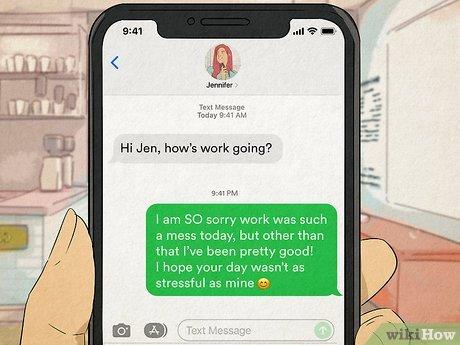Philadelphia’s Public Schools Confront Severe Librarian Shortage Amid Growing Educational Challenges
Severe Deficit in Library Staff Threatens Student Learning in Philadelphia
Philadelphia’s public education system is currently facing an alarming librarian shortage, with a mere three librarians tasked with supporting 218 district schools. This critical gap significantly limits students’ access to essential literacy materials, digital literacy instruction, and research assistance—resources that are indispensable in today’s educational landscape. Libraries serve not only as centers for reading but also as vital community hubs that nurture academic growth and engagement. The scarcity of qualified library professionals undermines these functions, raising concerns about the district’s ability to meet increasing educational demands.
In light of this crisis, educators and literacy advocates nationwide organized a coordinated “read-in” event to spotlight the urgent need for enhanced library staffing in Philadelphia. The event emphasized several key points:
- The indispensable role librarians play in cultivating literacy and analytical skills.
- How current staffing shortages restrict equitable access to learning resources.
- The pressing need for increased funding and policy reforms to address these deficiencies.
| Metric | Philadelphia School District | National Average |
|---|---|---|
| Number of Schools per Librarian | ~73 | ~10 |
| Total Librarians Employed | 3 | 1 per school |
| Student Access to Library Hours | Highly Limited | Consistent and Regular |
National Solidarity: Read-In Event Highlights Library Staffing Crisis
Across the United States, educators, students, and library supporters united both virtually and in person to raise awareness about the critical shortage of librarians in public schools, with Philadelphia’s situation drawing particular attention. The city’s 218 schools are served by only three librarians, a ratio that starkly contrasts with other major urban districts. The nationwide “read-in” event served as a compelling call to action, underscoring the vital contributions librarians make in promoting literacy, supporting academic success, and bridging resource disparities.
Key messages conveyed during the event included:
- Librarians are fundamental to ensuring equitable education, offering access to diverse materials and personalized student support.
- Budget reductions have drastically diminished library staffing, leaving many schools without dedicated professionals.
- Community investment is essential to revitalize school libraries and foster lifelong learning opportunities.
| City | Number of District Schools | Number of Librarians | Librarian-to-School Ratio |
|---|---|---|---|
| Philadelphia | 218 | 3 | 1 : 72 |
| Chicago | 140 | 20 | 1 : 7 |
| New York City | 1800 | 600 | 1 : 3 |
How Library Staff Shortages Undermine Student Achievement in Philadelphia
The scarcity of librarians in Philadelphia’s public schools severely limits students’ opportunities to engage with a broad range of reading materials, digital tools, and research guidance. With only three librarians available to support hundreds of schools, many students are deprived of the personalized assistance and resource-rich environments that libraries traditionally provide. This shortage exacerbates educational inequities, particularly in economically disadvantaged neighborhoods where access to books and technology is already limited.
During the recent nationwide read-in, participants highlighted the following consequences of the librarian deficit:
- Minimal professional literacy support across most district schools
- Restricted availability of books, digital media, and research resources
- Declines in student engagement and academic performance
- Critical need for increased investment in library personnel and materials
| Indicator | Philadelphia District Schools | National Average |
|---|---|---|
| Librarians per School | 0.014 | 0.65 |
| Percentage of Schools with Dedicated Librarians | 1.4% | 70% |
| Average Number of Books per Student | 5 | 20 |
Calls for Policy Reform and Increased Investment to Strengthen School Libraries
Experts and advocates stress that Philadelphia’s librarian shortage is emblematic of a broader national challenge that threatens educational quality and equitable access to learning tools. They argue that substantial increases in funding are necessary not only to hire additional library staff but also to transform school libraries into vibrant centers of literacy, technology, and critical thinking development. Research consistently links well-supported library programs with improved student outcomes, including higher standardized test scores and enhanced problem-solving abilities.
To address these issues, education leaders and policymakers are encouraged to implement comprehensive reforms such as:
- Establishing mandated minimum librarian-to-student ratios to guarantee adequate support in every school.
- Integrating library funding into broader educational equity initiatives to reduce disparities in underserved communities.
- Investing in up-to-date technology and digital resources to meet the demands of 21st-century learning.
| Current Status | Recommended Improvements | Expected Benefits for Students |
|---|---|---|
| 3 librarians for 218 schools | 1 librarian per 5 schools | Enhanced literacy and resource accessibility |
| $2 million annual library budget | $10 million annual budget | Modernized collections and expanded digital learning |
| Limited access to technology | Comprehensive tech integration | Development of critical 21st-century skills |
Conclusion: Philadelphia’s Librarian Shortage as a Catalyst for National Change
The dire situation in Philadelphia’s public schools, where only three librarians serve an entire district of 218 schools, highlights a pressing national issue regarding the funding and support of educational resources. The recent “read-in” event, which attracted participants from across the country, amplifies the urgent call for systemic reforms to ensure all students have equitable access to essential literacy services. As school districts nationwide contend with budget constraints and staffing challenges, prioritizing the recruitment and retention of qualified librarians is critical to fostering academic success and closing opportunity gaps. Philadelphia’s experience serves as a powerful rallying point for educators, families, and policymakers to recommit to strengthening school libraries and advancing quality education for every child.








